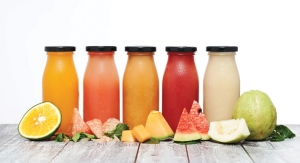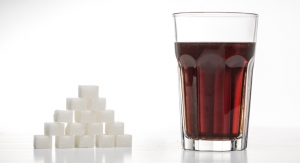The latest development in the sugary beverage battle included the publication of a study in the New England Journal of Medicine that gained national attention, and a rounded rejection by the American Beverage Association (ABA).
In the National Institutes of Health-funded study titled, “Sugar-Sweetened Beverages and Genetic Risk of Obesity,” researchers analyzed the interaction between genetic predisposition and the intake of sugar-sweetened beverages in relation to the body mass index (BMI) of 33,000 adults enrolled in other ongoing health studies.
“During the past 30 years, the consumption of sugar-sweetened beverages has increased dramatically,” the researchers wrote. “Compelling evidence supports a positive link between the consumption of sugar-sweetened beverages and the risk of obesity.
“The temporal patterns in the increasing consumption of these beverages have paralleled the rise in the prevalence of obesity; in the United States, both the intake of sugar-sweetened beverages and the prevalence of obesity have more than doubled since the late 1970s,” they added. “Therefore, we hypothesized that a high intake of sugar-sweetened beverages would influence the association between the genetic predisposition and adiposity.”
The study participants were categorized into four groups depending upon their self-reported sugar-sweetened beverage intakes: less than one serving per month, one to four servings per month, two to six servings per week or one or more servings per day. Sugar-sweetened beverages included caffeinated colas, caffeine-free colas, carbonated non-cola soft drinks and noncarbonated sugar-sweetened beverages (fruit punches, lemonades or other fruit drinks).
The researchers found “a significant interaction” in those who had the highest number of obesity-related gene variants, as they were more than twice as likely to become obese if they fell among the group that consumed the most servings of sugary beverages. “Our findings further underscore the need to test interventions that reduce the intake of sugary drinks as a means of reducing the risk of obesity and related diseases,” the researchers wrote.
In response, the American Beverage Association (ABA) issued a statement critical of the study’s blame on sugar-sweetened beverages as a singular culprit in the rise of obesity. “We know, and science supports, that obesity is not uniquely caused by any single food or beverage,” ABA said. “Thus, studies and opinion pieces that focus solely on sugar-sweetened beverages, or any other single source of calories, do nothing meaningful to help address this serious issue.”
The group also pointed out the study limitations, which were acknowledged by the authors. “In particular, the authors state, ‘it is unclear whether these factors linking the intake of SSBs to obesity modify the genetic effect, accounting for the observed interventions,’” ABA said. “They also note that the mechanisms by which most of the established BMI-associated genes work are largely unknown, so the underlying mechanisms interaction between the intake of sugar-sweetened beverages and a genetic predisposition to elevated adiposity or obesity need to be clarified.”
ABA additionally questions the possibility of measurement errors during the self-reporting process; the lack of evaluation of the proportion of the total energy intake derived from sugar-sweetened beverages; and the study cohort restriction to persons only of European ancestry. “Furthermore, the analysis has been done for only the 32 known genes associated with BMI to date, but these genes account for only a small amount of variation in BMI,” they said.
To support its claim that “sugar-sweetened beverages are not driving obesity,” ABA countered with its own facts and figures:
- While Americans consume about 617 more calories today than they did in 1970, more than 90% of those incremental calories come from sources other than beverages.
- Sugar-sweetened beverages contribute about 7% of the calories in the average American’s diet.
- Caloric intake from sugar-sweetened beverages declined by more than 20% between 2001 and 2010, yet obesity rates continued to rise.
- The average number of calories per beverage serving is down 23% since 1998 and about 45% of all non-alcoholic beverages purchased today have zero calories.
- Forty-eight percent of overweight and obese individuals drink no sugar-sweetened beverages.
























